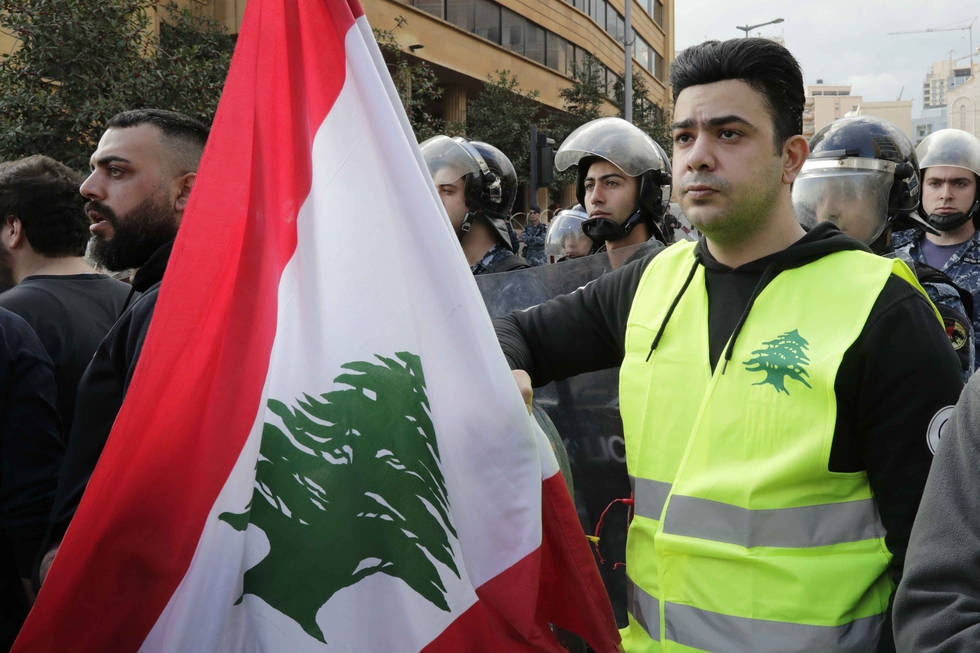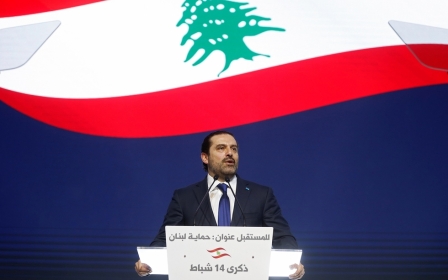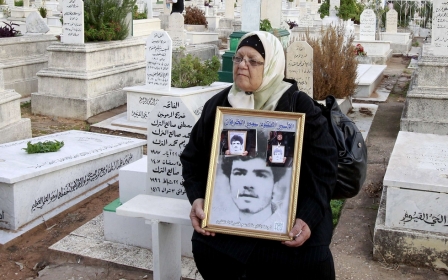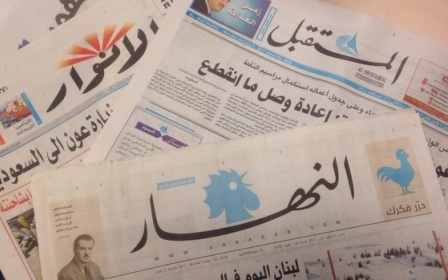Thousands of Lebanese protest against failing economy and politicians in Beirut

Thousands of protesters took to Beirut's streets on Sunday, railing against corruption, ailing services and the general failure of the country's politicians.
The protesters, many of whom were wearing yellow vests in a nod to the French anti-government "gilets jaunes" demonstrations, congregated in the Lebanese capital's central Downtown district.
Beginning peacefully, the protests grew rowdier as the day went on, with scuffles breaking out between demonstrators and the security forces.
The protests were organised on social media, with users sharing an image combining a yellow vest with the cedar tree, a national symbol found on Lebanon's flag.
Once the crowds swelled in Downtown Beirut, the protestors headed for the Grand Serail governmental building.
Demonstrators carried placards decrying the declining economic situation and the months-long deadlock that has left Lebanon without a government since parliamentary elections in May.
With security forces setting up barricades to keep the crowds from entering the Serail, central Beirut was forced into lockdown.
Later, some protesters moved east towards the Hamra and Qantari neigbourhoods, where the central bank is located, crying "revolution" and attempting to erect roadblocks.
Local media reported that soldiers and members of the Internal Security Forces police service beat protestors as events escalated in Hamra.
Journalists were reportedly caught in the fray, too, with video emerging of soldiers assaulting a photographer working for the local English-language newspaper The Daily Star.
The photographer, Hasan Shaaban, is clearly heard shouting "press" as he is placed in a chokehold and thrown to the ground.
Economic and political crisis
Lebanon is facing an economic crisis as its politicians wrangle over the formation of a new national unity government following parliamentary elections eight months ago.
The country is mired in vast public debt and has suffered under stagnant growth for years.
It has been particularly badly affected by the neighbouring Syrian war. More than one million Syrian refugees have found refuge in Lebanon, swelling the country's population by a quarter and putting increased strain on its already threadbare infrastructure.
Lebanon's leaders had said they hoped to finalise a government before Christmas, but on Saturday this looked unlikely as new issues emerged.
Downtown Beirut has witnessed several major protests in recent years, including the "Cedar Revolution" of 2005 when a million people took to the streets demanding an end to the Syrian occupation in the wake of former Prime Minister Rafic Hariri's assassination.
More recently, in 2015, a rubbish crisis that saw refuse pile up on the streets of Beirut at the height of summer sparked the "You Stink" protests, which like Sunday's, decried the corruption and mismanagement prevalent in Lebanese politics.
Middle East Eye propose une couverture et une analyse indépendantes et incomparables du Moyen-Orient, de l’Afrique du Nord et d’autres régions du monde. Pour en savoir plus sur la reprise de ce contenu et les frais qui s’appliquent, veuillez remplir ce formulaire [en anglais]. Pour en savoir plus sur MEE, cliquez ici [en anglais].




